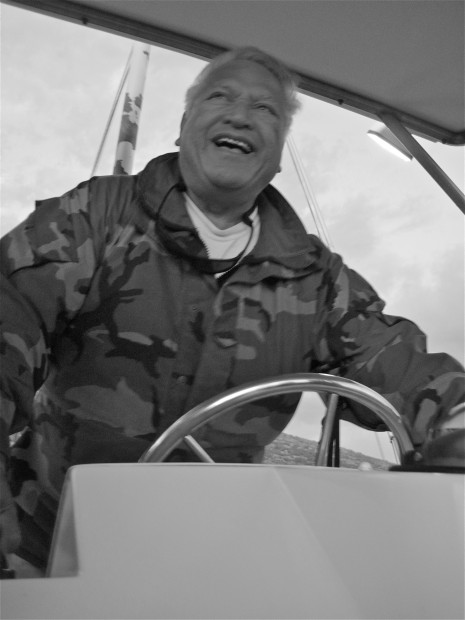• Pastor Wayne Patton • Kahu James Fung • The Baha’i of Kaua‘i • Editor’s note: “Spiritual leaders answer” is a weekly column inviting Kaua‘i’s religious and spiritual leaders to share their doctrines’ perspective on a suggested subject. Every Friday
• Pastor Wayne Patton • Kahu James Fung • The Baha’i of Kaua‘i
• Editor’s note: “Spiritual leaders answer” is a weekly column inviting Kaua‘i’s religious and spiritual leaders to share their doctrines’ perspective on a suggested subject. Every Friday a topic is printed, inviting a response. Submissions are edited for content and length. Submitting a piece does not guarantee publication due to space limitations. Thoughts or suggestions for future topics are always welcome. Next week the suggested topic is regret. The topic at the end of the column is for the following week.
Pastor Wayne Patton
Anahola Baptist Church
The boy Samuel’s story is told in the Old Testament of Samuel exemplifying traits of godly leadership. The boy Samuel became a mighty leader in ancient Israel because he was first faithful in little things.
Missionary Hudson Taylor once said, “A little thing is a little thing, but faithfulness in a little thing is a great thing.” Jesus said that “whoever can be trusted with very little can also be trusted with much.” (Luke 16:10).
Samuel also learned to listen to the voice of God. When I was a college student, I was inspired by Henry David Thoreau’s famous quotation: “If a man does not keep pace with his fellow companions perhaps it is because he hears the beat of a different drummer.” Samuel became a great leader because he learned to march to the beat of a divine drummer.
Leaders make themselves constantly available. The boy Samuel says five times “Here I am.” If we want to live a life of significance, we have got to realize that God wants to use us and that all there is of God is available to the person who is available to all there is of God.
Samuel did not waste one minute trying to jockey for position, trying to scratch and claw his way to the top, trying to win respect and recognition. He just followed the Lord and God established him as the leader of Israel.
If God can use the boy Samuel, He can surely use us.
Kahu James Fung
Lihu‘e Christian Church
Some people have it. They exude enthusiasm — a vision of something compelling. Others notice and begin to pay attention and pretty soon catch the spirit. That’s how leadership ignites the imagination and motivates people down a new path. Jesus did this. The leader who inspired the movement that came to be known as the Christian faith was a person who electrified the multitudes with his speaking ability and the good sense that he made. He was a person of humility, an engaging story-teller who spoke of God as if God were an intimate acquaintance.
The people he gathered around him who became his apprentices were uneducated, simple, down-to-earth fishermen and day laborers. But there was something mysteriously powerful in what happened among this group of itinerant teachers in the beginning of the first century.
Jesus inspired his followers to become something more than how they saw themselves. He elevated their self-expectations. As they gained more confidence they were able to do things that surprised even themselves.
After Jesus died they believed his spirit lived on within them, enabling them to overcome obstacles, to be fearless in the face of death, to accomplish what others could only call miraculous.
The Baha’i of Kaua‘i
The widely held definition of “leadership” is to control or to give orders. This model of leadership tends to disempower and coerce others into agreement. To halt the decay of society and to create an ever-advancing civilization, a new model of leadership is needed. The following quote is excerpted from a document by the Baha’i International Community United Nations Office, describing a proposed leadership model that is based on service to others:
“The leadership model which is being proposed is unequivocally centered on service to others. Therefore, one of the prerequisites for moral leadership is the spirit of service — service to one’s family, community and nation. This spirit of service does not in any way negate individual drive or initiative, nor does it stifle individual creativity. Rather it calls for a model of leadership which will release the potential of the individual while safeguarding the well-being of the whole.”
Topic for two weeks from today
• Will you speak to us on forgiveness?
• Spiritual leaders are invited to e-mail responses of three to five paragraphs to pwoolway@kauaipubco.com.
• Deadline each week is 5 p.m. Tuesday.


